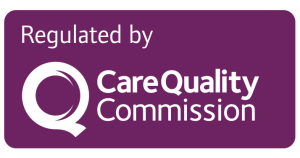Frequently Asked Questions (FAQs)
This process usually takes less than a week. You can speed this up by providing your vital signs ahead of your appointment, and by checking with your pharmacy as to what medication they have in stock.
All clinicians also undergo a rigorous onboarding process prior to joining our team.
We also understand that, for many reasons, parental input may not be possible. If this is the case, do not worry, the assessment can still proceed. If you can find any other information from your childhood years, such as school reports, then this also could be helpful.
Making the right decision about which provider to go with for your mental health needs can be extremely daunting. We are here to support you at every stage of the decision-making process.
If you would like to talk to us, or have any questions, please do not hesitate to contact us here +44 20 4587 9345 or enquiries@harleystreetadhd.co.uk and we can arrange a call back to go through your queries.
Inclusion Criteria
- Aged 17.5 + years
- Individuals exhibiting traits of autism, ADHD and mental health difficulties (such as depression, OCD, PTSD and anxiety) linked with interpersonal challenges, emotional dysregulation, difficulties with communication and general functioning.
- It is important to show readiness and motivation to engage with the service.
- Prior diagnoses are accepted upon review and satisfaction of standards.
Exclusion Criteria
Note: The following exclusion list is not exhaustive. Clinical discussions in the multidisciplinary team (MDT) will provide further insights and the referral may be rejected should the team decide it is appropriate.
- We will consider whether neurodivergence is the primary or secondary condition when reviewing the referral. We appreciate that neurodivergent presentations can often be co-morbid with mental health difficulties; however, the referral may be declined if any of the following are the primary concern.
- Personality disorders
- Psychosis
- Eating disorders (BMI < 17)
- Clients unable or unwilling to engage with our service will not be accepted.
- Clients that refuse, or are unable, to provide consent to uphold the terms in respect of confidentiality.
- Clients with high levels of risk will be redirected to appropriate support. For example:
- Active suicidal ideation and self-harm that has required medical treatment
- Recent suicide attempt
- Significant substance misuse
- Ongoing legal issues
- Clients that present with verbal, physical, threatening behaviour or aggression towards staff.





